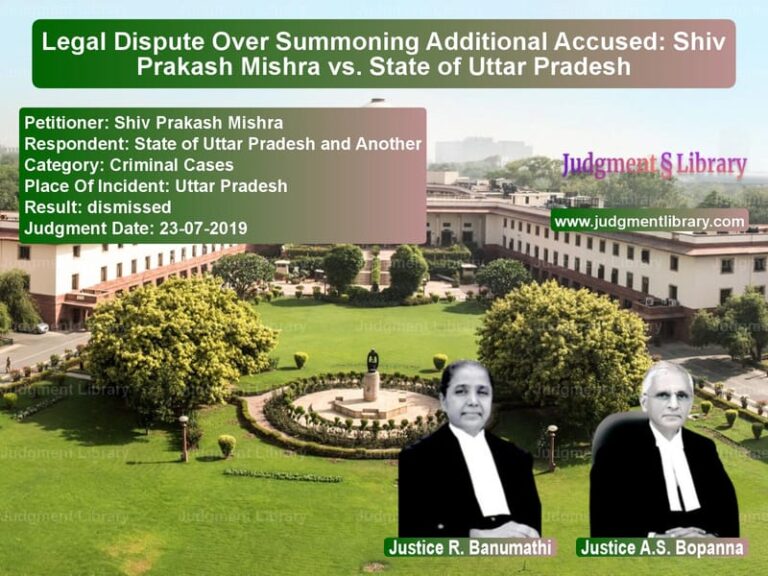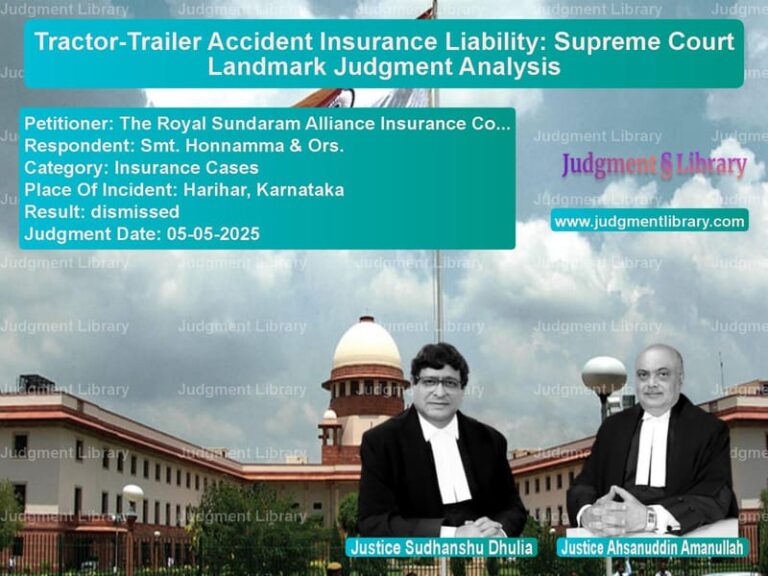Supreme Court Resolves Punjab Governor vs. CM Dispute: Key Constitutional Insights
The Supreme Court of India recently ruled in the case of State of Punjab vs. Principal Secretary to the Governor of Punjab & Another, addressing a constitutional crisis between the Punjab Governor and the Chief Minister. The dispute arose when the Governor delayed summoning the Budget Session of the Punjab Legislative Assembly, citing concerns over the Chief Minister’s response to his queries. The Supreme Court intervened to ensure the constitutional balance between the Governor and the elected government.
Background of the Case
The Punjab government, led by Chief Minister Bhagwant Mann, recommended summoning the Budget Session of the Punjab Vidhan Sabha on March 3, 2023, under Article 174(1) of the Constitution. However, the Governor, Banwarilal Purohit, delayed approving the request, citing concerns over the Chief Minister’s previous conduct and failure to provide information on various governance matters.
The Governor highlighted that the Chief Minister had failed to respond properly to his queries regarding issues such as:
- The selection process of school principals sent for training in Singapore.
- The appointment of the Chairman of the Punjab Information and Communication Technology Corporation Limited.
- The disbursement of scholarships for Scheduled Caste students.
- The appointment of a police officer despite allegations against him.
- The presence of an unauthorized individual in official meetings discussing security matters.
In response, the Chief Minister tweeted that he and his government were accountable only to the people of Punjab and not to a Governor appointed by the Central Government. This led to the Governor stating that he would seek legal advice before deciding on summoning the Assembly.
Petitioners’ Arguments
- The Punjab government argued that the Governor was constitutionally bound to act on the advice of the Council of Ministers.
- They contended that delaying the Assembly session violated Article 174(1), which mandates that there should not be a gap of more than six months between two sessions.
- The government emphasized that the Governor had no discretionary power in this matter and must approve the Cabinet’s recommendation.
- They sought a direction from the Supreme Court to compel the Governor to summon the Assembly.
Respondents’ Arguments
- The Governor’s office argued that the Chief Minister had disrespected the constitutional process by refusing to answer legitimate queries.
- They contended that Article 167 required the Chief Minister to provide information to the Governor, and the refusal to do so raised concerns about governance.
- The respondents maintained that while the Governor’s role is largely ceremonial, the Chief Minister’s disregard for constitutional propriety could not be ignored.
Key Observations by the Supreme Court
The Supreme Court examined the constitutional provisions governing the relationship between the Governor and the Chief Minister and made the following observations:
- The Court reaffirmed that the Governor must act on the aid and advice of the Council of Ministers when summoning the Assembly.
- It held that the Governor’s refusal to approve the Cabinet’s request for summoning the session was unconstitutional.
- The Court clarified that while the Governor has the right to seek information under Article 167, this power cannot be used to obstruct the functioning of the Assembly.
- The justices emphasized that constitutional functionaries must maintain decorum and avoid political confrontations that disrupt governance.
- The judgment also noted that the Chief Minister had a constitutional duty to furnish information requested by the Governor.
Judgment
The Supreme Court ruled as follows:
- The Governor was ordered to summon the Punjab Vidhan Sabha for its Budget Session immediately.
- The Court held that the Chief Minister’s failure to respond to the Governor’s queries did not justify delaying the Assembly session.
- It emphasized that both the Governor and the Chief Minister must uphold their constitutional responsibilities without allowing personal disagreements to interfere with governance.
- The Court disposed of the petition, urging both parties to exercise restraint and maturity in their interactions.
Implications of the Judgment
This ruling has significant constitutional implications:
- Reaffirming the Governor’s Role: The judgment clarifies that the Governor is bound to act on the advice of the elected government in matters related to legislative sessions.
- Ensuring Smooth Governance: The ruling prevents constitutional crises that may arise from conflicts between Governors and Chief Ministers.
- Balancing Authority: The judgment emphasizes that while the Governor has oversight powers, these cannot be used to obstruct governance.
- Maintaining Institutional Respect: The Court urged constitutional functionaries to engage in responsible dialogue rather than public confrontations.
Conclusion
The Supreme Court’s decision in this case is a landmark ruling that upholds the balance of power between the Governor and the elected government. By ensuring that the Assembly session was convened, the Court reinforced the principle that constitutional processes must not be stalled due to political disagreements. This judgment serves as a critical precedent for future conflicts between Governors and Chief Ministers, ensuring that governance is not disrupted by constitutional impasses.
Read also: https://judgmentlibrary.com/judicial-review-in-high-court-judge-appointments-supreme-courts-verdict/
Petitioner Name: State of Punjab.Respondent Name: Principal Secretary to the Governor of Punjab & Another.Judgment By: Justice Dhananjaya Y Chandrachud, Justice Pamidighantam Sri Narasimha.Place Of Incident: Punjab, India.Judgment Date: 28-02-2023.
Don’t miss out on the full details! Download the complete judgment in PDF format below and gain valuable insights instantly!
Download Judgment: state-of-punjab-vs-principal-secretary-supreme-court-of-india-judgment-dated-28-02-2023.pdf
Directly Download Judgment: Directly download this Judgment
See all petitions in Constitution Interpretation
See all petitions in Fundamental Rights
See all petitions in Legislative Powers
See all petitions in Public Interest Litigation
See all petitions in Separation of Powers
See all petitions in Judgment by Dhananjaya Y Chandrachud
See all petitions in Judgment by P.S. Narasimha
See all petitions in allowed
See all petitions in settled
See all petitions in supreme court of India judgments February 2023
See all petitions in 2023 judgments
See all posts in Constitutional Cases Category
See all allowed petitions in Constitutional Cases Category
See all Dismissed petitions in Constitutional Cases Category
See all partially allowed petitions in Constitutional Cases Category







